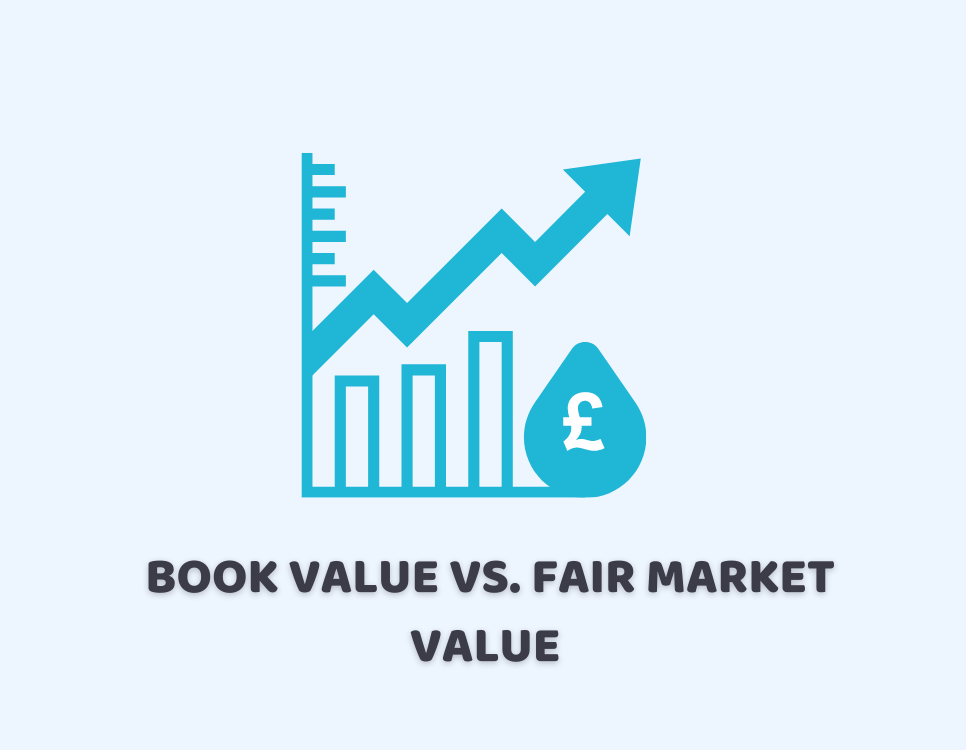
15/06/2022Business , Business Growth Ideas
In the corporate world, where people sometimes want to sell their business at a much higher price to earn a handsome profit. Similarly, other businessmen and investors wish to invest in the already established businesses. They can come across terms like book value vs. market value.
Now, the question arises of how the sellers can estimate the worth of their business to get a fair price of their business. Besides, the buyers would like to buy a business at a fair market value. For this reason, many valuation methods and techniques are used by business consultants and advisors.
However, each type of tool and method differ from each other considerably, giving a different value of the business valuation. As a result, the sellers and the buyers become confused and they become hesitant in making a crucial decision.
In this blog, we will walk you through the two most common methods of business valuation before selling or buying a business. Moreover, we will discuss the difference between these two important terms. So, let’s begin!
If you are struggling to calculate the worth of your business, get instant help from the professional accountants at the CruseBurke. Contact us now!
What is Book Value And How To Calculate it?
While selling a business, the seller would like to know the actual worth of his business before making a lucrative selling pitch. So, the business owners would hire expert business consultants to estimate the actual business value or worth of their business.
If a company is publicly limited and listed on a stock exchange, the book value refers to the total amount all shareholders will get when the company will be liquidated.
Book value is the most important measure to analyse the value of all the assets by subtracting the liabilities from them. The remainder value is the actual worth or the book value of a business. It is calculated as:
Book Value = Total Assets – Total Liabilities
What is the Market Value and Why is it Important?
Market value, also known as the fair market value, is the amount or value of all the outstanding shares and the market price of a stock. When market value is much lower than the book value, it leads to the conclusion that a company is not representing the true value and worth and gives false information about the company’s books.
The value investors usually prefer this type of situation where the market value is less than the book value and they expect the earning power or potential of a company to increase in the upcoming years due to the various factors.
It means to say a sound investment decision relies on many factors. Book value and market value is the most widely used method for analysing the stock value or company value.
On the contrary, a higher market value than the book value means the company is showing the appreciated value of the company stocks and books.
Determining a fair market is crucial for analysing the true worth of a business and reaching a fair deal.
Investors looking to invest in a publicly-traded company also analyse book value and the market value to make a decision if the company is worth their investment or not.
Here is a formula for calculating the market value of a company:
Market value = Price of a stock * Total number of outstanding shares
Market value is also known as market capitalization and comparing these values helps investors to know if the stock is undervalued or overvalued.
Difference between Book Value Vs. Market value
As discussed above, the discrepancy between book value vs. market value reflects the confidence of the investors in the future earning potential of a company.
A book value measures the total value of the assets of a company after deducting all the liabilities on the balance sheet. In other words, it is the value all shareholders will receive when the company is liquidated.
On the other hand, the market value is the price of the stock and the total number is outstanding shares. When these two numbers are multiplied, the investor will get the market capitalisation of a company. It is the amount that will be distributed among the shareholders in financial markets.
Conclusion
In sum, the book value and market value are important to know the overall financial health and performance of a company.
Comparing book value vs. market value is crucial as it reflects the risks and challenges associated with the books of a company.
Sometimes, book values and market values of a company differ from each other considerably, indicating the red flags and investors can decide if they should buy or invest in this company.
Want to sell or buy your business in the UK? Get adequate business valuation services at the CruseBurke. Get instant help now!
Disclaimer: All the information provided in this article of Book Value Vs. Market Value is general in nature. It does not intend to disregard any of the professional advice

